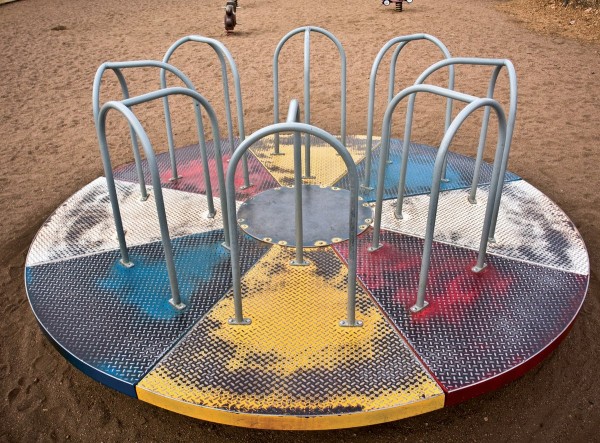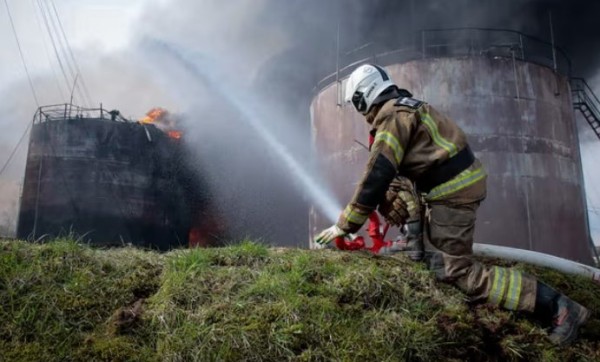Gwyn Morgan
VICTORIA, BC, Oct. 25, 2012/ Troy Media - In my last column (The regeneration of Europe's Baltic states) I described an expedition that took my wife and me to Russia and the Baltic Republics of Estonia, Latvia and Lithuania.
In Russia, we found depressingly shattered hopes that freedom and capitalism would bring Western style prosperity. Paradoxically, even after enduring terrible treatment at the hands of their Russian oppressors for half a century, we witnessed the remarkable progress that the people of the Baltic republics have made since winning independence in the early 1990's.
Why has moving from socialism to capitalism proven so disappointing for Russians and so positive for Estonians, Lithuanians and Latvians?
The answers to these questions lie in the two fundamental requirements for the transformation from Socialist repression to a free market Capitalist economy. First, since the government owns virtually everything; a thoughtful, transparent and unbiased privatization process is required. Second, the rule of law must be enforced against corruption.
Russia's transition from Socialism to Capitalism failed on both counts. In an ill-considered privatization process, vouchers exchangeable for shares in huge oil, mining, and other industrial companies were distributed to citizens who had no concept of private ownership. Chaos reigned as some people even traded vouchers for shots of vodka in bars, resulting in the vouchers being purchased for a pittance by men who instantly became fabulously wealthy.
Several Russians despairingly told us that these so-called oligarchs gained their private jets, mega yachts and international palaces "over the backs of the Russian people"; thus becoming symbols of Capitalism's failure.
But even if the oligarch enriching privatization debacle had been avoided, the country would have been doomed by entrenched government corruption. Transparency International ranks 183 countries from best to worst for public sector corruption. The 10 best are New Zealand, Denmark, Finland, Sweden, Singapore, Norway, the Netherlands, Australia, Switzerland and Canada. The U.S. ranks a respectable 24th. Near the bottom of the list is Russia at 143rd, in the same league as Africa's Sierra Leone, Nigeria and Uganda. To get almost anything done in Russia, the palms of crooked government officials must be greased.
No wonder the Russian people are so cynical. They hoped capitalism would bring prosperity, only to become pawns of the same corrupt elite that victimized them for so long under Socialism.
The privatization process in the Baltic Republics was much more carefully thought out. The first privatization priority was home ownership. But people couldn't afford to buy their apartments from the government. And then there was the problem that Russians transplanted under the Soviet "Russianization" process occupied the most desirable accommodation.
Estonia's solution was a transfer of home titles based on how long people had lived and worked in the country. And where pre-Soviet ownership of houses and farms could be traced, title was transferred back to the original owners or their descendents. While Estonia's privatisation of other assets and businesses utilized a voucher system similar to that in Russia, a much lengthier, stepwise process yielded better value for the public treasury while generally avoiding the unfair enrichment of individuals.
Lithuania's transition to free market Capitalism followed a similarly successful process. Latvia's privatization also followed the same basic template, although many observers believe that sale of the country's larger base of industrial assets involved corruption that unfairly enriched insiders.
It's not surprising that the relative post-privatization success of the three Baltic Republics and that of Russia mirror their Transparency International government corruption rankings. Estonia ranks almost the same as the U.S. at 29th, Lithuania ranks 50th and Latvia 61st, all vastly better than Russia's dismal 143rd.
The people of the Baltic Republics positively revel in their hard-won personal and economic freedoms. And gaining membership in the European Union was a hugely emotional milestone, symbolising their final step in "rejoining" Europe after decades of Russian repression.
Those many years of enforced Socialism taught them hope and prosperity doesn't lie in government programs; but rather in their own creativity, determination and work ethic. Comparing her country to its Scandinavian neighbors, one Estonian told me that. "We lost four decades, but will catch up".
I have no doubt that they will.
Gwyn Morgan is a Canadian business leader and director of two global corporations.
(Posted on The Baltic Asmerican Freedom League website, http://www.bafl.com/NewsItem.a... )
Baltic Republics revelling in their hard-won freedom
Arvamus
TRENDING
























